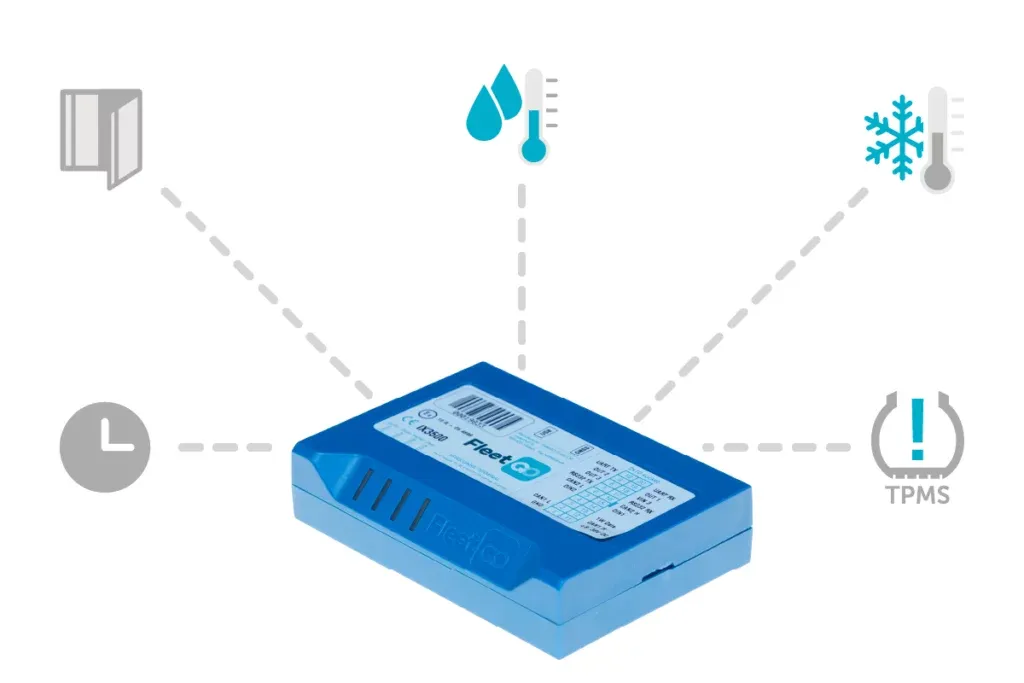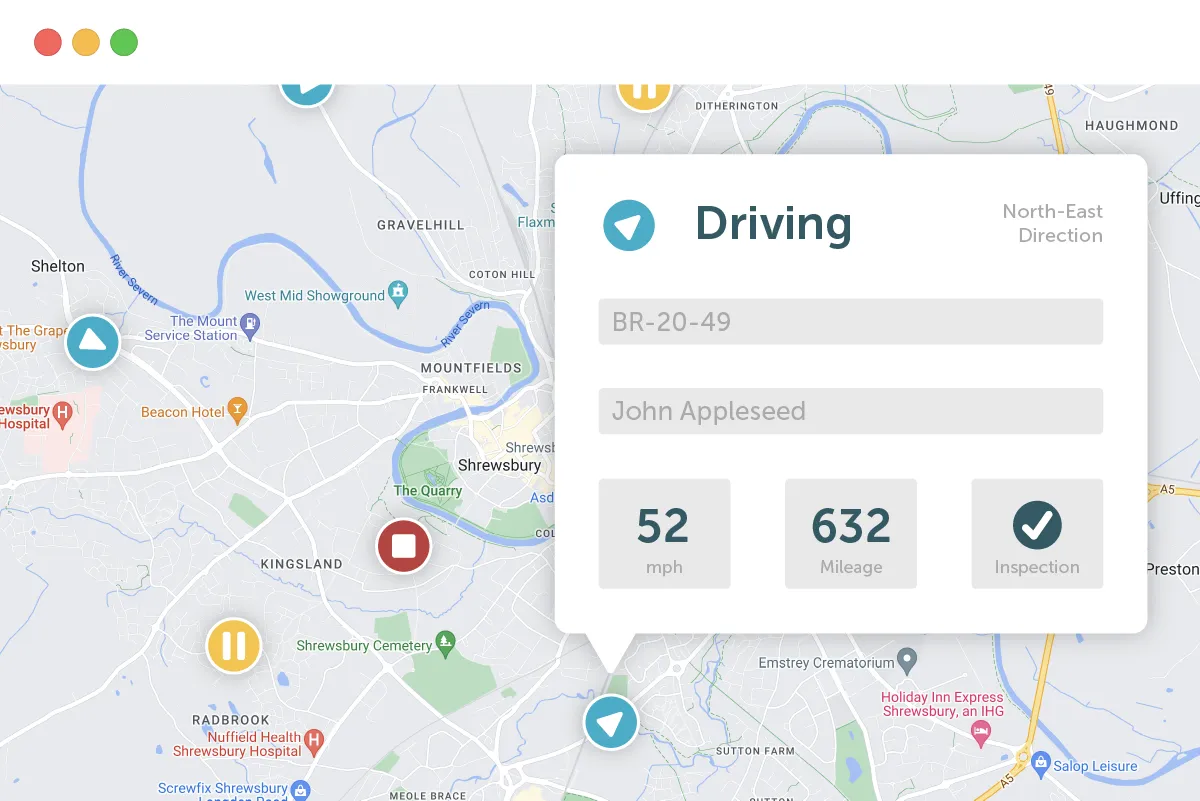Vehicle tracking devices are important for businesses with a fleet of cars for daily operations. They allow easy monitoring and management of vehicles and drivers to improve overall productivity. Aside from providing the location of the vehicles, tracking systems help businesses easily manage daily transport activities.

A vehicle tracking system has two parts: in-vehicle telematics (vehicle tracking GPS device) and fleet management software for collecting data from the vehicle and driver. A vehicle tracking device records a range of data, including location. Business owners use trackers and tachograph analysis to get an instantaneous history of the fleet routes, halting spots, checkpoints and idle periods. While a GPS tracking device records vehicle data, it requires software to access the information. The vehicle tracking software can be managed on a phone, tablet or computer and allows remote access to a vehicle’s location, speed and travel routes. The in-vehicle telematics relies on GPS technology, which uses satellites to transmit data.
- Who developed a GPS tracking device for vehicles?
- What is the legal implication of a tracking device on a vehicle?
- What components do simple vehicle tracking devices have?
- What examples of vehicle tracking GPS devices are there?
- How and where is a GPS tracking device for vehicles installed?
- What are the benefits of using the CubiQ and OBD GPS vehicle tracking devices?
Who developed a GPS tracking device for vehicles?
Vehicle tracking devices in the UK seem like relatively new inventions, but they have been around since 1978. The devices were launched alongside the experimental satellites put into space. The idea was to eventually put enough satellites in space to validate the use of vehicle tracking. Public use of GPS tracking devices began in 1996 in the USA, and businesses could now purchase them for their fleets.
Initial tracking devices were expensive, with enormous subscription fees due to the cost of running satellite technologies. Hence, only fleets with cash to spare could afford to install the vehicle trackers. While the current tracking devices bear witness to the original GPS technology, many improvements have been made. The technological improvements facilitate accurate information transmission in real time. Nowadays, businesses can find affordable vehicle tracking devices and use geo-fencing to prevent theft.
Start Tracking Your Fleet
Get started with Fleet Tracking from FleetGO. You will have a complete overview of your fleet. See the GPS location of your drivers in real-time and optimes your operations.
Manage your Fleet on the GO

What is the legal implication of a tracking device on a vehicle?
While vehicle tracking is not a legal requirement in the UK, haulage and fleet management companies rely on GPS trackers to manage business operations. That means they must adhere to the laws relating to GPS tracking and surveillance. Privacy concerns are the major legal implications of using tracking devices. Installing a GPS tracker on a personal vehicle or business-owned truck is legal. The data collected by vehicle trackers is considered personal and protected under the GDPR laws. Hence, business owners cannot use the information without their employees’ permission.
When a business installs a vehicle tracking GPS device, they must inform the drivers and provide accurate information on the collected data. It is also important to state the intent of the data collection. For instance, managers must ensure vehicle tracking solutions are for business purposes only. That means a business cannot track employees outside work hours.
What components do simple vehicle tracking devices have?
Most people understand what GPS tracking devices are but rarely know the components of the tracking devices used in their vehicles. Here are the parts that most vehicle tracking devices have:
• GPS module: It synchronises the device’s time and pinpoints its location. When the vehicle’s time drifts from the GPS time, the module ensures they are aligned. The module ensures the data collected by the tracker is in real time. When data is collected, the GPS module transmits it to the microcontroller, which classifies information such as speed, latitude, longitude and altitude.
• Communication part: Aside from a GPS module, a vehicle tracking GPS requires a GSM module that connects the tracking device with the world. The GSM system establishes a GPS connection and relays information to the server.
• Flash memory: Before sending information to a server, GPS trackers record the information in flash memory or an SD card inserted into the device. When data is transmitted to servers, it is deleted from the flash memory.
What examples of vehicle tracking GPS devices are there?
An example of the best vehicle tracking device is the CubiQ , manufactured in-house by FleetGO . This FleetGO vehicle tracking device features the latest edition of telematics hardware and innovative features. The CubiQ hardware seamlessly integrates with FleetGO Cloud. Hence, the vehicle tracker can log activities and record information accessible in real time through the cloud. The security features of the CubiQ sets it apart from other vehicle tracking devices in the UK. It features firmware signing and encryption and SMS-command signing. Aside from the basic features, the tracking device allows integration of additional accessories, like driver identification, privacy switch and CAN-bus integration.
How and where is a GPS tracking device for vehicles installed?
Vehicle tracking device installation doesn’t require advanced experience in vehicles. It only takes three steps or fewer to install a plug-and-play OBD device . However, help is generally required for the installation of the CubiQ device.
The installation involves attaching a tracker’s red wire to the constant power wire and the GPS device’s white wire to the vehicle’s ignition wire. It is simpler to fix the GPS tracker underneath the dash, but it can also be fitted near the ignition coil. Since modern trackers are compact, it is possible to fit them anywhere.
What are the benefits of using the CubiQ and OBD GPS vehicle tracking devices?
A vehicle tracking GPS device provides simple monitoring features with huge benefits for businesses.
Vehicle monitoring devices include OBD and the CubiQ devices. An OBD (on-board diagnostics) is a plug-and-play positioning device that is installed right into the OBD port of a vehicle. The CubiQ is a modular hardware platform for light and heavy vehicles with high-end security features. The CubiQ requires more complex installation than an OBD but it offers increased options and benefits.
Some of the benefits of using monitoring devices include the following:
• Tracking vehicles and drivers: Every successful fleet management business adheres to trust and a verification attitude. While empowering workers to be productive, a simple vehicle tracking device can improve business operations. Collecting vehicle and driver data provides insights into the areas of improvement using data such as tachograph analysis. For instance, managers can use the information to identify drivers that require further training.
• Improves customer service: A GPS tracking device for vehicles boosts customer satisfaction by improving service delivery. Managers can dispatch the right vehicles and provide prompt services when they know where all the delivery trucks are. Since a GPS device transmits data in real time, managers can provide accurate arrival times to customers.
• Managing route planning: A GPS vehicle tracking device keeps a comprehensive history of journeys and maps of routes. Managers can evaluate the trip lengths and discover inefficiencies in fleets. The information is useful in improving route planning and efficiency in business operations.
• Streamlines vehicle maintenance: Vehicle tracking systems monitor what is happening underneath the hood. When a car needs maintenance or repairs, the monitoring systems provide an alert after the vehicle walk-around . Regular maintenance reduces breakdowns and associated operating costs.
Conclusion
Telematics and GPS tracking provide actionable insights into fleet operations. The in-built GPS and telematics work together as part of a complementary system to improve vehicle tracking. Besides, providing real-time data allows managers to conduct a tachograph analysis and record the locations of all vehicles. The benefits of vehicle trackers to businesses include operational efficiency, better customer service, reduced downtimes and operational costs. The trackers also improve the overall profitability of businesses. Choosing the ideal vehicle tracker for fleet management requires weighing the benefits of plug-and-play or hardwired options available. The accessories also improve the information collected in the systems.
Sources:
- https://ec.europa.eu/info/law/law-topic/data-protection/eu-data-protection-rules_en
- https://www.techtarget.com/whatis/definition/geofencing
- https://en.wikipedia.org/wiki/Vehicle_tracking_system
- https://gdpr.eu/what-is-gdpr/#:~:text=The%20General%20Data%20Protection%20Regulation,to%20people%20in%20the%20EU.
Disclaimer
This content is provided for informational purposes only and is not meant to be an endorsement or representation by FleetGO.com or any other party. This information may contain inaccuracies or typographical errors, despite our efforts to ensure accuracy. FleetGO.com accepts no responsibility or liability for any errors or omissions, and is not responsible for the contents of any linked website or any link contained in a linked website. Please refer to our full disclaimer for more details.


